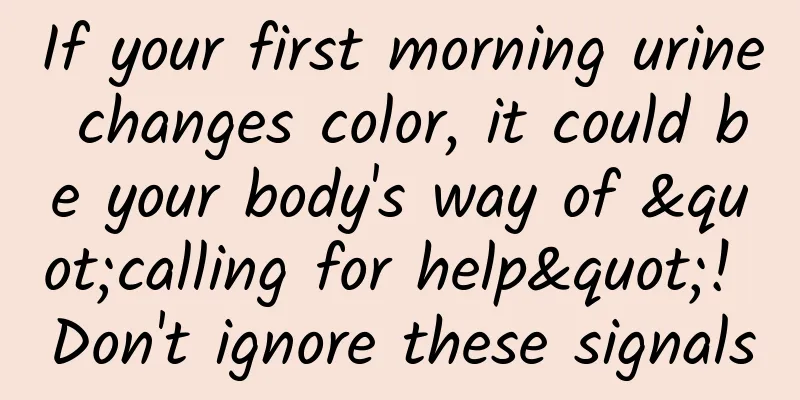How to treat cataracts? Don’t believe in the wrong way to deal with cataracts

|
According to statistics People aged 60 to 89 in my country The incidence of cataracts is about 80% Among the causes of blindness caused by eye diseases in my country Cataracts account for the highest proportion It is a major killer that endangers the eye health of the elderly! Presbyopia and cataracts Mostly occurs in the elderly But many people cannot correctly distinguish between these two diseases. Cataracts, which are extremely harmful to the eyes Treat it as normal presbyopia Severe damage to vision Caused blindness What is the difference between cataracts and presbyopia? Tips: Presbyopia suddenly improves, is this a good thing? The refractive medium changes rapidly when we are young, and is very stable for a period of time. However, after the age of 40, the refractive medium gradually becomes unstable due to the gradual turbidity of the lens. Therefore, if presbyopia suddenly improves, it is not worth being happy about, as it may indicate the onset of cataracts, an eye disease. Tips: 6 symptoms that may indicate cataracts When your vision is impaired, it is not just blurry when you see things, but you will feel like there is a layer of fog in front of your eyes. The original presbyopia symptoms suddenly improved, but distant vision is still blurry. Vision decreases in bright light. Reduced color contrast sensitivity. Seeing double. I change glasses frequently, but I still can't see things clearly. Cataracts can cause blindness. What should I do then? Of course it is cured! Tips: The wrong way to deal with cataracts Without treatment: Some elderly people do not realize that they have cataracts and lack understanding of cataracts. They think that they can’t see clearly due to their age, so they delay treatment. Others think that cataracts are something that everyone will get and it is not a serious disease and there is nothing to treat. Both of these situations will cause patients to ignore cataract treatment and allow it to develop, eventually leading to serious problems such as glaucoma, lens dislocation, and uveitis. Eye drops: Some patients are deceived by advertisements of unscrupulous businesses and use eye drops to treat cataracts. Wang Yong, a cataract expert at the Aier Eye Hospital affiliated to Wuhan University, reminds everyone that, in fact, no eye drops have a clear effect on controlling the occurrence and development of cataracts. Surgery is the only effective way to treat cataracts. Only by replacing the cloudy lens of the human eye with an artificial lens can cataract patients regain clear vision. Procrastination: There are always some elderly people who still hold this outdated idea: cataracts should be treated only when they are fully developed and should be delayed. In fact, this statement is outdated. In the past, surgical technology was backward, and cataract surgery required the removal of the cloudy lens as a whole. Therefore, if the lens was not mature to a certain thickness, it would break when clamped and could not be removed as a whole. But now the mainstream cataract surgery only requires a tiny incision of 2 to 3 mm. The harder the lens is, the more difficult it will be to break it during surgery. The earlier the surgery is done, the easier it is to break the lens, the less difficult the surgery is, the fewer complications, and the faster the recovery after surgery. Therefore, there is no need to delay cataract surgery. The purpose of traditional cataract surgery is to restore vision Success is achieved by simply allowing the patient to see light, human shadows, and object shadows. As people's requirements for quality of life increase Many patients no longer simply seek to regain their sight. Instead, it requires to maximize the visual quality after surgery. So is there any way to help the elderly solve problems such as cataracts and presbyopia in an all-in-one way? Tips: Who can consider surgery if they have presbyopia? People with farsightedness: Hyperopia is the opposite of myopia. Hyperopia imaging falls behind the retina, which is consistent with the imaging method of "presbyopia". Therefore, this group of people will have "presbyopia" earlier and with a higher degree. As their ability to adjust continues to decline, they will wear two pairs of glasses, one for far and one for near. Moreover, the axial length of the eye of hyperopic people is shorter than that of normal people. In layman's terms, the space inside the eyeball is relatively narrow. As these people age, when the lens ages and becomes cloudy and develops into cataracts, the lens will continue to expand and increase in size, making the already small space even more crowded and prone to secondary glaucoma. Therefore, by replacing the artificial lens, not only can the problems of "presbyopia" and hyperopia be solved, but the occurrence of glaucoma can also be prevented. People with cataracts: The lens of normal people starts to age and become cloudy at around 50 years old, and senile cataracts occur. Some people with high myopia, diabetics with poor blood sugar control, and people in high-altitude areas with strong sunlight may develop cataracts at an early age of 40. At this time, due to the cloudy lens, the degree of glasses cannot be accurately verified, and glasses cannot effectively solve vision problems. For these people, surgery can be performed to replace the lens and solve the eye problems at the same time. People with high astigmatism: As these patients age, they suffer from astigmatism and presbyopia, making it difficult for them to wear glasses. They can undergo surgery to replace their glasses with artificial lenses that correct astigmatism and improve their visual quality. Patients with angle-closure glaucoma and those with a related family history: Asia is a high-incidence area for angle-closure glaucoma, and the incidence rate among Chinese people after the age of 40 is about 3%. Middle-aged and elderly people who are susceptible to angle-closure glaucoma or have a family history of the disease can undergo lens replacement surgery to avoid the worries of "presbyopia", cataracts, and glaucoma. In addition, people who engage in close-up and fine work and those who need good vision throughout their work can also consider surgery. |
>>: Why do so many mobile phones use Android? Where was Android developed?
Recommend
Can I run during early pregnancy?
Many doctors always encourage expectant mothers t...
What should I do if my period does not come for more than 10 days?
Women will have their periods when they enter pub...
Heavy menstrual bleeding like water
It is normal to have heavier menstrual flow in th...
Is a kidney cyst a tumor? Does it require surgery? Find out!
The vast majority of renal cysts are benign condi...
Can I eat arugula during my period?
Diet is very important to us humans. In ancient t...
What is a daffodil? How to distinguish between a daffodil and an orchid
Daffodils are regarded as a symbol of good luck. ...
Will ovulation pain affect pregnancy?
The egg is a special existence in the woman's...
What causes brain atrophy?
1. Genetic factors: Many studies at home and abro...
Girls need to be alert when their palms sweat!
We all know that we sweat when we exercise or whe...
The old man sat for a long time playing mahjong, and his waist and back were sore and painful! He was actually "targeted" by this disease!
Uncle Zhang has been suffering from soreness and ...
How is ocean snot formed? How deep is the ocean?
70% of the Earth's total surface area is cove...
What should I do if the leucorrhea flows out like yellow water?
When the leucorrhea becomes very clear, flows out...
Medroxyprogesterone to delay menstruation
There are many issues that women need to pay atte...
Come on, my period is coming. My chest hurts.
"Aunt Flo" is an affectionate name for ...









